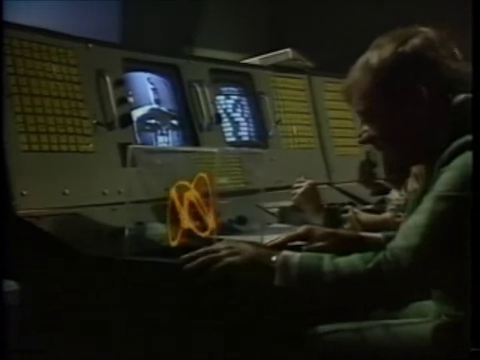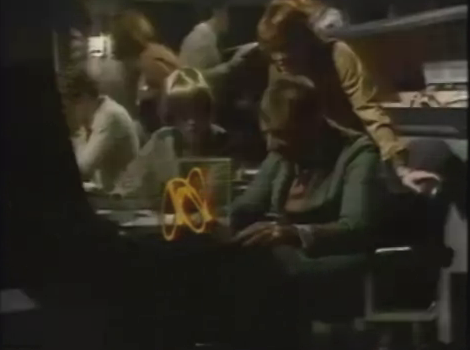A fairly large percentage of my time online is still spent hanging around forums. Admittedly, not as much as I did in 2002, where my time on a Knightmare forum directly contributed to me failing to get a degree. But still enough to notice a rather unfortunate pattern from some posters, across many different topics of conversation.
Let’s take an example, from a TV presentation forum I frequent, perhaps despite my better judgement.1
“Anyone else often wonder what planet certain posters are living on? Very few people care about TV presentation outside this forum.”
And I get it, I really do. Some posters are utterly tiresome with their statements that the entire general public cares deeply about the current set of BBC One idents. Sometimes, you just want to let everyone know that at least you’re aware that there’s a wider world out there. One where people don’t tut or cheer depending on what’s bunged in front of EastEnders.
But.
* * *
There I was, sitting in the TX suite of a popular television channel a few years back. Let’s take a look at the programmes on in the afternoon. Ooh, hang on, that show was made in back in the 80s, was it? I’m sure we have an era-appropriate ident we can stick in front of that.
So I make the change in the schedule – checking with all the right people before doing so, in case anybody relevant is reading this – and then did the junction, live announcer and all. Everything went fine, and I sat back, pleased I’d added something fun to the nation’s viewing that afternoon.
A few weeks later, the announcer collared me, and said her mum had been watching, and she loved the ident. It brought back so many memories for her from decades ago, and got all excited when it appeared. And not just because her daughter was talking over it.
* * *
If TV presentation fans are near the bottom of the fandom pile2, then there’s one kind of fan even they are allowed to look down on: jingle anoraks.3 It seems that in real life, most people just aren’t interested in discussing the intricacies of WPLJ jingle packages.4 Which is frankly outrageous.
Still, when Radio 1 Vintage aired in 2017, celebrating 50 years of Radio 1, a curious thing happened in my Twitter feed. “Oh yeah, I remember that jingle…” People who I’d never managed to get into a conversation about jingles were suddenly enthusing about all those silly six second songs.
It was great.
* * *
Red Dwarf fandom was in quite a miserable state in 2008. It’s no secret that morale was on the floor. We’d lost all trace of Red Dwarf, tempers were strained, and supplies were… wait, sorry, this isn’t Ganymede & Titan, I’ve really got to stop throwing in these stupid quotes.
Anyway, the site was quieter than it had been in years. Certainly, we had less reader engagement than ever before. Then, suddenly, new episodes were announced.
* * *
My point, of course: this stuff isn’t binary. People aren’t either interested enough in TV presentation to post on forums, or not interested whatsoever. Same goes for jingles, same goes for Red Dwarf, same goes for anything.
Sure, a general audience doesn’t tend to spend every evening pondering unused BBC Two idents, listening to some of the worst radio jingles ever made, or comparing episodes of Red Dwarf and Hancock’s Half Hour. But to presume that somebody doesn’t have an interest in a subject just because they don’t hang around on a forum risks being hugely patronising. Where did all those people interested in Red Dwarf magically appear from and give Dave those record ratings?
Answer: they were always there. They just didn’t spend much time reading a website about it, that’s all. But it doesn’t mean they didn’t care.
* * *
And yes, I used the “For ‘Em” joke back on Ganymede & Titan in 2004, on Noise to Signal in 2006, and here on Dirty Feed in 2010.
I am a complete twat.
Rule: don’t read about comedy on a TV presentation forum. And don’t read about TV presentation on a comedy forum. ↩
I’m allowed to say that, I’m one myself. ↩
I’m allowed to say that, I’m one myself. ↩
If you are interested in this, I highly recommend Jon Wolfert’s Sunday Jingle Show. ↩



